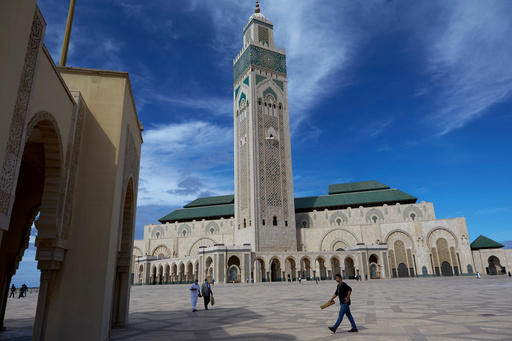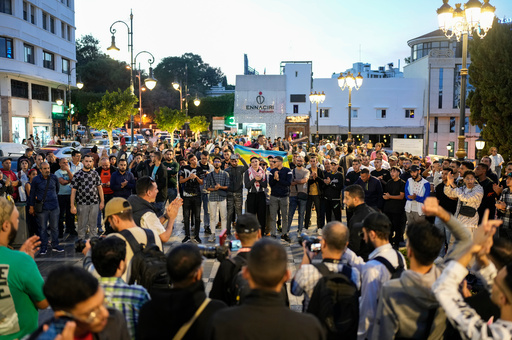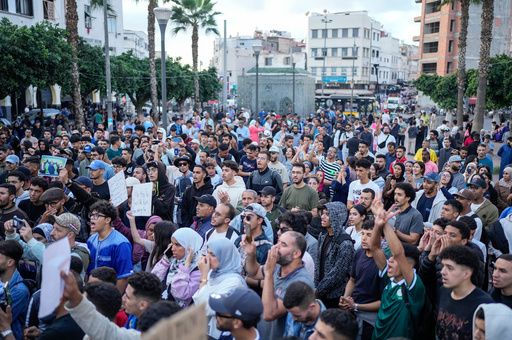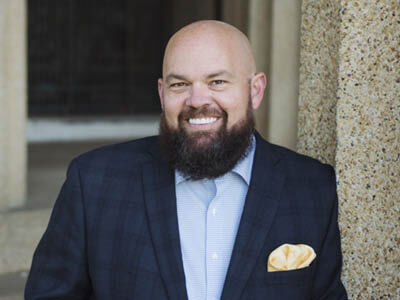Sermons urge youth to take part in public affairs in Morocco after wave of protests
News > International News

Audio By Carbonatix
2:13 AM on Monday, October 27
By AKRAM OUBACHIR
RABAT, Morocco (AP) — Worshippers sat shoeless on the red-carpeted floor of a mosque in Morocco's capital in silence, listening to a preacher in a raised pulpit reading a government-written sermon urging parents to involve their children in public affairs.
The sermon, heard in mosques across the kingdom Friday, came after Morocco was shaken by an unprecedented and deadly youth uprising in recent weeks that demanded better social and economic conditions. The sermon didn’t directly address the protests, but was seen by some as an effort by the government to send a message to demonstrators in the movement, known as Gen Z 212.
Preachers traditionally chose the topics of their sermons that precede congregational prayers. But in recent years, governments in countries including Morocco, Egypt, and Saudi Arabia have dictated sermon content. Officials say the move aims to curb extremist speech, but critics argue it turns sermons into tools for promoting the state’s vision and backing its policies.
In a mosque in the Moroccan capital of Rabat, the imam, dressed in a white djellaba robe and speaking on a microphone to hundreds of worshippers from different ages, social and economic backgrounds, urged the faithful to fulfill their duty to the nation by participating in civic life.
“One of the most important things we should care about is raising children to participate in the managing of public affairs (...) and participation in serving the nation, loving the homeland and watching over its security and stability,” the imam said.
“A true citizen is the one who serves his nation and does it well,” he added, citing verses from the Quran, his voice echoing outside the mosque. Imams in Morocco are government employees, and sermons are standardized. The same sermon heard in Rabat is delivered across the country’s 53,000 mosques and aired live on public television.
The protests stemmed from anger over government spending in sports infrastructure for the 2030 World Cup while public services were perceived as neglected. They were organized on social media platforms like Discord by an anonymous group that rejects any affiliation to political parties and called for toppling a government it views as corrupt.
Government officials said they heard the young activists’ grievances and called on them to engage in dialogue and debate with institutions and in the public sphere. Several new measures, announced in a Cabinet meeting chaired by King Mohammed VI last week, are aimed at boosting youth political participation and job opportunities.
They include a draft bill that would simplify election candidacy requirements for people younger than 35 and provide financial support covering 75% of their campaign fees. Many observers drew a direct link between the measure and the content of Friday’s sermon.
The government also said the 2026 budget draft will allocate a record $15 billion (140 billion dirhams) on health and education, billions more than what was spent this year, will create 27,000 jobs in the two sectors, upgrade 90 hospitals and improve the overall quality of education.
In Friday's sermon, the imam cited examples of how disciples of Mohammed involved their children in councils to discuss public affairs.
The Imam did not mention the Gen Z protests or the acts of vandalism, deaths and arrests linked to the demonstrations.
The Moroccan Association of Human Rights said Friday that more than 1,500 people are facing prosecution for participating in the gatherings. The appeal court of Agadir, a coastal city 296 miles (477 kilometers) from Rabat, sentenced 33 defendants to a total of 260 years in prison for vandalism, local media reported.
“I sincerely hope the real purpose behind these sermons is to support young people’s participation in public affairs, not to guide or restrict them,” said Soufiane, an 18-year-old college student at a weekend protest in Casablanca. He spoke on condition his last name not be used because of fear of retribution.
He said Friday's sermons should be backed by real and transparent action, but also noted that they could be a powerful way to positively influence young people to engage in political life.
After the government's promises and Friday's sermons, weekend protests drew fewer than expected participants. Only dozens appeared at Saturday's Casablanca gathering.
“Friday sermons serve as a tool for practicing politics through mosques, whether to defend the state’s positions ... or to address other issues,” said Dr. Driss El Ganbouri, a researcher specializing in religious affairs.
“The state adopts a dual discourse toward citizens: one religious, and the other reflected through official decisions,” added El Ganbouri, author of ‘’Islamists Between Religion and Power.''
El Ganbouri said many believe sermons have not kept pace with Morocco’s political and social realities, noting that preachers who stray from official messages can be punished or dismissed.










